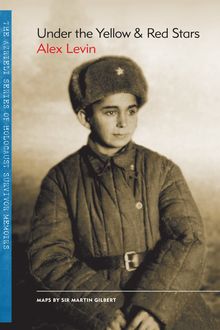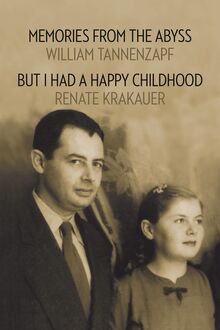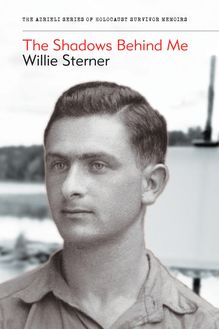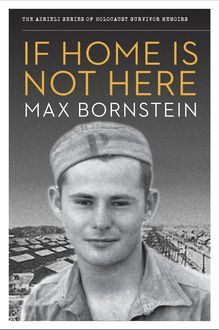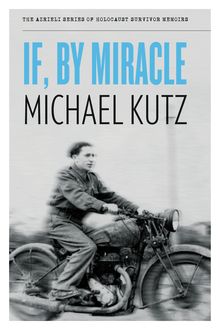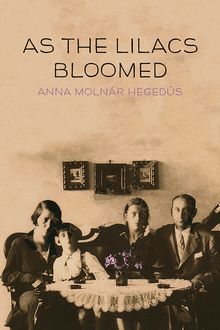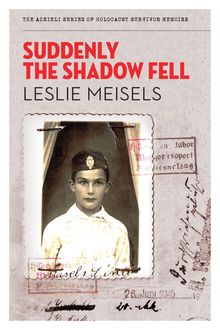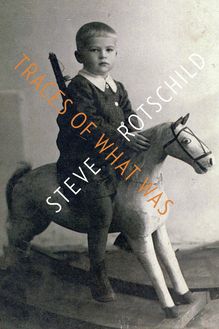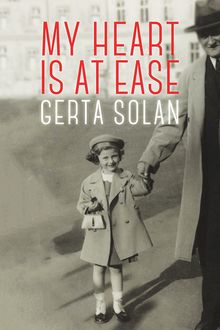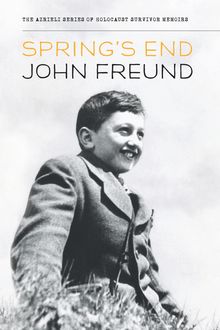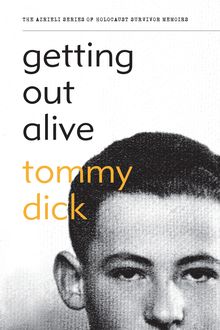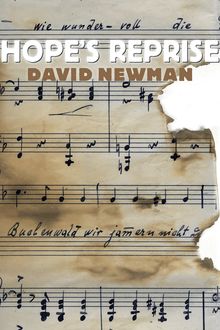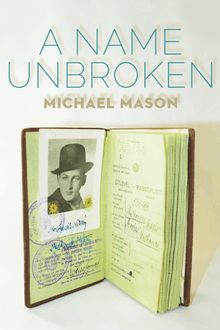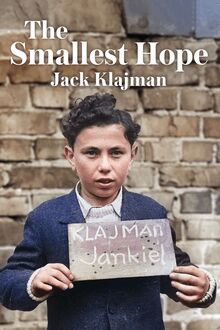-
 Univers
Univers
-
 Ebooks
Ebooks
-
 Livres audio
Livres audio
-
 Presse
Presse
-
 Podcasts
Podcasts
-
 BD
BD
-
 Documents
Documents
-
- Cours
- Révisions
- Ressources pédagogiques
- Sciences de l’éducation
- Manuels scolaires
- Langues
- Travaux de classe
- Annales de BEP
- Etudes supérieures
- Maternelle et primaire
- Fiches de lecture
- Orientation scolaire
- Méthodologie
- Corrigés de devoir
- Annales d’examens et concours
- Annales du bac
- Annales du brevet
- Rapports de stage
La lecture à portée de main
Vous pourrez modifier la taille du texte de cet ouvrage
Découvre YouScribe en t'inscrivant gratuitement
Je m'inscrisDécouvre YouScribe en t'inscrivant gratuitement
Je m'inscrisEn savoir plus
Vous pourrez modifier la taille du texte de cet ouvrage
En savoir plus

Description
Sujets
Informations
| Publié par | Azrieli Foundation |
| Date de parution | 01 septembre 2007 |
| Nombre de lectures | 1 |
| EAN13 | 9781897470916 |
| Langue | English |
| Poids de l'ouvrage | 1 Mo |
Informations légales : prix de location à la page 0,0300€. Cette information est donnée uniquement à titre indicatif conformément à la législation en vigueur.
Extrait
Bits and Pieces
Henia Reinhartz
The Azrieli Series of Holocaust Survivor Memoirs
Naomi Azrieli, Publisher
Jody Spiegel, Program Director
Arielle Berger, Managing Editor
Farla Klaiman, Editor
Elizabeth Lasserre, Senior Editor, French-Language Editions
Aurélien Bonin, Educational Outreach and Events Coordinator, Francophone Canada
Catherine Person, Educational Outreach and Events Coordinator, Quebec region
Elin Beaumont, Senior Educational Outreach and Events Coordinator
Tim MacKay, Digital Platform Manager
Susan Roitman, Executive Assistant and Office Manager (Toronto)
Mary Mellas, Executive Assistant and Human Resources (Montreal)
Mark Goldstein, Art Director
François Blanc, Cartographer
Bruno Paradis, Layout, French-language editions
Acknowledgements
Many thanks to my grandson Mordechai Walfish for his careful reading of the manuscript.
Contents
The Azrieli Series of Holocaust Survivor Memoirs
Acknowledgements
Series Preface:In their own words...
About the Glossary
Introduction
Author’s Note (delete)
The World of My Childhood
The War
The Ghetto
The Sperre
At Work
Friendship
The Liquidation of the Ghetto
In the Concentration Camps
Return to Life, In Search of Father
Feldafing
Brussels
Paris
On the Boat
Canada
Glossary
Photographs
Copyright
About the Azrieli Foundation
Also Available
Series Preface:In their own words...
In telling these stories, the writers have liberated themselves. For so many years we did not speak about it, even when we became free people living in a free society. Now, when at last we are writing about what happened to us in this dark period of history, knowing that our stories will be read and live on, it is possible for us to feel truly free. These unique historical documents put a face on what was lost, and allow readers to grasp the enormity of what happened to six million Jews – one story at a time.
D avid J . A zrieli , C.M., C.Q., M .Arch
Holocaust survivor and founder, Th e Azrieli Foundation
Since the end of World War ii, over 30,000 Jewish Holocaust survivors have immigrated to Canada. Who they are, where they came from, what they experienced and how they built new lives for themselves and their families are important parts of our Canadian heritage. The Azrieli Foundation’s Holocaust Survivor Memoirs Program was established to preserve and share the memoirs written by those who survived the twentieth-century Nazi genocide of the Jews of Europe and later made their way to Canada. The program is guided by the conviction that each survivor of the Holocaust has a remarkable story to tell, and that such stories play an important role in education about tolerance and diversity.
Millions of individual stories are lost to us forever. By preserving the stories written by survivors and making them widely available to a broad audience, the Azrieli Foundation’s Holocaust Survivor Memoirs Program seeks to sustain the memory of all those who perished at the hands of hatred, abetted by indifference and apathy. The personal accounts of those who survived against all odds are as different as the people who wrote them, but all demonstrate the courage, strength, wit and luck that it took to prevail and survive in such terrible adversity. The memoirs are also moving tributes to people – strangers and friends – who risked their lives to help others, and who, through acts of kindness and decency in the darkest of moments, frequently helped the persecuted maintain faith in humanity and courage to endure. These accounts offer inspiration to all, as does the survivors’ desire to share their experiences so that new generations can learn from them.
The Holocaust Survivor Memoirs Program collects, archives and publishes these distinctive records and the print editions are available free of charge to libraries, educational institutions and Holocaust-education programs across Canada. They are also available for sale to the general public at bookstores. All revenues to the Azrieli Foundation from the sales of the Azrieli Series of Holocaust Survivor Memoirs go toward the publishing and educational work of the memoirs program.
•
The Azrieli Foundation would like to express appreciation to the following people for their invaluable efforts in producing this book: Todd Biderman, Helen Binik, Tali Boritz, Mark Celinscak, Mark Clamen, Jordana DeBloeme, Tamarah Feder, Andrea Geddes-Poole, Valerie Hébert, Joe Hodes, Tomaz Jardim, Irena Kohn, Tatjana Lichtenstein, Carson Phillips, Randall Schnoor, Tatyana Shestakov, and Mia Spiro.
About the Glossary
The following memoir contains a number of terms, concepts and historical references that may be unfamiliar to the reader. For information on major organizations; significant historical events and people; geographical locations; religious and cultural terms; and foreign-language words and expressions that will help give context and background to the events described in the text, please see the Glossary .
Introduction
My family and I were in hiding. The entrance to our hiding place was a wooden wardrobe positioned against a plywood partition…. From dawn until dusk we sat in this little room. We didn’t talk…. We were mute, not a sound could be heard, a dead room. We were sure they would discover us…. Suddenly I heard someone panting on the stairs…. We didn’t breathe. Who was coming now?
With her fiery red hair, the teenaged Henele Rosenfarb hides in a small room in the Lodz ghetto, in Poland. She is with her parents and her older sister, and some neighbours who have joined them in their secret room. Twenty people in all, they try to muffle all sounds of life, hoping to outwit the Nazi soldiers who have come to take them to an undisclosed place where they will be killed.
More than half a century later, across a vast ocean, Henele – now Henia Reinhartz – sits in her home in Toronto. She begins to write down the stories that comprise the “bits and pieces” of her life so that her Canadian-born grandchildren can have a sense of her childhood and young adulthood, in a different place and a different time, so unlike their own.
Reinhartz’s stories of pre-war Poland plunge us into a world of material poverty, but rich in family warmth, community spirit, passion for culture, and devotion to social justice. It moves us through the hardships of World War ii and the Nazi genocide, as seen through the eyes of a young girl. It brings us, eventually, to Montreal of the late 1940s, as experienced by a new immigrant, and finally to Toronto.
Born in 1926 in Lodz, Poland, an industrial city approximately 120 kilometres southwest of Warsaw, Henele was raised in a closely knit extended family that was, in many ways, typical of Polish Jewish families in the early part of the twentieth century. By that time, Jews had lived in Poland for almost a thousand years, and the country had become home to one of the largest Jewish populations in the world.
Jewish life in Poland was full of contradictions. On the one hand, Jewish religious and cultural life had thrived there for hundreds of years. Arriving first as transient peddlers and merchants, Jews eventually settled in Poland to escape the harsh prejudices of the nearby German Empire and other regions. Compared to the Jewish experience elsewhere in Europe and Russia, Polish Jews lived in relative peace with their neighbours. Indeed, the sixteenth-century Krakow scholar Rabbi Moses Isserles famously punned on the Hebrew name for Poland – Polin – suggesting that God had led European Jews to the area and told them, “Poh lin,” Hebrew for “Rest here.” Over centuries, significant centres of Jewish learning and important religious and political movements had developed and flourished. Jews in Poland also evolved their own distinct musical traditions, along with literature, theatre, and cinema in Yiddish, the everyday language of Eastern European Jews.
On the other hand, Polish Jews often experienced harsh persecution and sometimes violent attacks – pogroms – at the hands of their non-Jewish Polish neighbours. If Jews were tolerated because, as merchants, middlemen and financiers, they were perceived as bringing some economic benefit to the country, long-standing prejudices against them nevertheless endured, sometimes erupting in violence. As Polish nationalism developed after World War i, the country became increasingly less tolerant of ethnic minorities in its midst, notwithstanding guarantees in the Polish constitution to protect the rights of minorities. During the period between the two world wars, the economic condition of Polish Jews deteriorated drastically. Barred from most government positions – and the government was a major employer at that time – Jews also found that their usual employments were increasingly taken over by non-Jewish Poles.
By the time Reinhartz was growing up, Polish Jewry was largely urbanized. While some Jews resided in small towns, known as shtetls, by the end of the nineteenth century, most had flocked to the burgeoning cities, partly as a result of government policies regulating their livelihood and residence. Many Polish Jews were deeply pious in their religious practice. But Jews were greatly affected by the process of modernization that was sweeping eastward across Europe. Many of them sought ways to accommodate their trad
-
 Univers
Univers
-
 Ebooks
Ebooks
-
 Livres audio
Livres audio
-
 Presse
Presse
-
 Podcasts
Podcasts
-
 BD
BD
-
 Documents
Documents
-
Jeunesse
-
Littérature
-
Ressources professionnelles
-
Santé et bien-être
-
Savoirs
-
Education
-
Loisirs et hobbies
-
Art, musique et cinéma
-
Actualité et débat de société
-
Jeunesse
-
Littérature
-
Ressources professionnelles
-
Santé et bien-être
-
Savoirs
-
Education
-
Loisirs et hobbies
-
Art, musique et cinéma
-
Actualité et débat de société
-
Actualités
-
Lifestyle
-
Presse jeunesse
-
Presse professionnelle
-
Pratique
-
Presse sportive
-
Presse internationale
-
Culture & Médias
-
Action et Aventures
-
Science-fiction et Fantasy
-
Société
-
Jeunesse
-
Littérature
-
Ressources professionnelles
-
Santé et bien-être
-
Savoirs
-
Education
-
Loisirs et hobbies
-
Art, musique et cinéma
-
Actualité et débat de société
- Cours
- Révisions
- Ressources pédagogiques
- Sciences de l’éducation
- Manuels scolaires
- Langues
- Travaux de classe
- Annales de BEP
- Etudes supérieures
- Maternelle et primaire
- Fiches de lecture
- Orientation scolaire
- Méthodologie
- Corrigés de devoir
- Annales d’examens et concours
- Annales du bac
- Annales du brevet
- Rapports de stage

